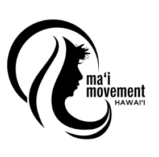Period Poverty
noun
1 the limited or inadequate access to menstrual products or menstrual health education as a result of financial constraints, negative socio-cultural stigmas associated with menstruation, or inadequate access to period-friendly sanitation facilities and running water
2 the state of menstrual inequity

THE COST OF PARADISE
- 15% of local households live below the Federal Poverty level
- 44% of local households make just enough not to be "poor" but struggle to meet the most basic needs
- Hawai'i leads the nation with the highest cost of living
- Low-wage workers are increasingly more vulnerable as the job landscape changes and as wages remain stagnant
- Low income is associated with lower levels of education, higher rates of unemployment and poorer health
-
(ALICE IN HAWAI'I: 2022 FACTS AND FIGURES)
In 2023, more of
Hawai'i's families are
struggling to make ends meet.
The economic downturn due to the pandemic, coupled with sharp inflation, has only exacerbated the financial and economic hardships local households have already been facing. The families struggling to cover basic needs are the same families that will suffer in silence with period poverty.
Today, 1 in 3 parents across the nation are worried about their ability to afford period products. When girls, women, transgender and nonbinary individuals do not have access to period products, studies have shown their education, work and livelihood are directly and negatively impacted.
OUR RESPONSE
We at Maʻi Movement Hawaiʻi believe it is our kuleana, or responsibility, that all individuals of menstruation age have the right to access period products, safe and hygienic places to use them, and the right to manage their bodies without shame or stigma.
Hāʻawi
Access our Amazon Order List and donate from a list of period products. All products purchased will go directly to individuals or organizations working with menstruators.
Kākoʻo
Join us in demanding systemic change towards gender inequality by dismantling legislation that perpetuates period poverty.
Makana
Support our initiative and make a monetary donation through PayPal to keep our operations going. All funds will be used to purchase period products and maintain operating costs.
Latest News
Learn about our latest initiatives & get involved today!
Bleeding for Equity
In 2023, Maʻi Movement Hawaiʻi, in collaboration with George Mason University, surveyed University of Hawaiʻi students about their lived experiences regarding accessibility of menstrual products and its impacts. It is the first study of its kind to examine the realities of period poverty at University of Hawaiʻi campuses.
2024 Legislative Priorities
The introduction of menstrual equity policies aims to address the ongoing effects of menstrual inequity and period poverty within the state of Hawaiʻi. This legislative session, we are focusing on increasing access in state buildings and across University of Hawaiʻi campuses.
The Hoʻohanohano Initiative
On June 20, 2022, Governor David Ige signed SB2821 into law, effective July 1, 2022. It requires the Hawaii State Department of Education and Hawaii State Public Charter School Commission to provide menstrual products to all students, free of charge, on all public school campuses, including public charter schools. Additionally, $2 million was allocated every fiscal year. We created a toolkit from the statewide pilot, the Ho’ohanohano Initiative, to support school implementation to distribute free period products.
Government Report on Menstruation in Hawai'i
We released the first report on menstruation in Hawaiʻi in collaboration with the Hawaiʻi State Commission on the Status of Women in November 2021. When we started Maʻi Movement Hawaiʻi in 2020, there was no local organization singularly focused on the issue of period poverty and addressing menstrual inequity in Hawaiʻi at a systemic level. We wanted to change that, and more importantly, we wanted to give the people of Hawai'i a voice in the cause.
Mahalo for Your Kōkua !
Our organization is run 100% by volunteers and completely funded by donations. We appreciate any amount – no matter how big or small.
Since Nov. 2020
Distributed
Partners
